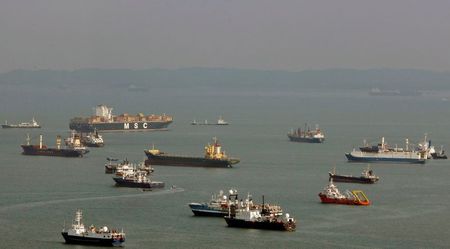Japan, South Korea and industry groups oppose EU plan to cut shipping emissions

Japan, South Korea and a fleet of international shipping groups have warned the European Union against its plan to add greenhouse gas emissions from the maritime sector to Europe’s carbon market.
As the 27-country EU seeks to steer its economy towards “net zero” emissions by 2050, the executive European Commission wants to expand its carbon market to shipping.
Currently, the policy requires power plants, factories and airlines running European flights to buy pollution permits to cover their emissions.
The proposal, formally due by next summer, has already run into opposition.
“The application of EU-ETS to international shipping will have adverse repercussion on both environmental integrity and sustainability of global maritime transport and trade,” the South Korean government said in its response to an EU consultation on the policy, which closed on Thursday.
“Extension of EU ETS to international shipping is not the suggested way forward, whether the scope is limited to intra-EU shipping only or not,” Japan’s government said in public documents submitted to the European Commission.
The countries warned that adding shipping to Europe’s carbon market could stoke trade tensions, and cause extra emissions by prompting ships to take longer routes to avoid stops in Europe.
Shipping produces 2.1 per cent of global CO2 emissions, a share expected to rise if left unchecked, threatening global efforts to curb climate change.
The International Maritime Organisation is developing global measures to deliver its pledge to halve shipping greenhouse gas emissions by 2050. It says the EU plan undermines these efforts. Critics say the IMO measures are not ambitious enough and additional action is needed.
“I do not see binding measures to reduce greenhouse gas emissions at IMO level any time soon,” said Jutta Paulus, a Green lawmaker in European Parliament. Parliament approved in September a proposal by Paulus to add shipping to the EU carbon market in 2022.
Industry associations BIMCO and the World Shipping Council also said it is too early to add shipping to a carbon market, citing a lack of commercially viable technologies to cut emissions.